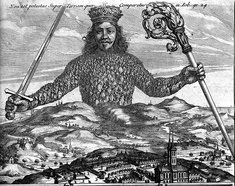|
Question or Term
|
Answer
|
|
The conservative belief in which cultural boundaries are representative of political boundaries
|
Nation-state
|
|
A book written by Thomas Hobbes during the English Civil War arguing for an autocratic state to safeguard against the brutality and war of the 'state of nature' which would otherwise arise due to human imperfection
|
Leviathan
|
|
A nineteenth century development of liberalism closely associated with John Stuart Mill that advocated developmental individualism, negative freedom, and self help
|
Later classical liberalism
|
|
Where elites decide what is best for non-elites regardless of the latter's wants
|
Hard Paternalism
|
|
A German Enlightenment philosopher who argued for individualism over collectivism and a rational foundation to morals and ethics
|
Immanuel Kant (1724 - 1804)
|
|
The view that society is very loose, consisting of autonomous individuals, as espoused by the new right but rejected by most conservatives
|
Atomism
|
|
John Stuart Mill's exception to the liberal principle of tolerance, that power can rightfully be exercised against someone's will to prevent harm to others
|
Harm Principle
|
|
That which came to the fore in the 1970's and 80's as a response to perceived one-nation conservative failings as reflected in growing inflation, unemployment, crime, welfare spending, trade union militancy, and 'moral laxity'
|
New Right Conservatism
|
|
The classical liberal idea that humans are naturally interested in their own advancement and happiness, though prevented from being outright selfish due to rationalism
|
Egotistical Individualism
|
|
An English philosopher who argued for formal and foundational equality and formal education to enhance society's collective human capital and protect the principles of the Enlightenment
|
Mary Wollstonecraft (1759 - 1797)
|
|
|
Question or Term
|
Answer
|
|
That form of government championed by John Stuart Mill, though only under the conditions arising from the establishment of universal education
|
Representative Democracy
|
|
The earliest branch of liberalism, placing the highest value on individual rights and freedoms, as espoused by John Locke and the Enlightenment
|
Early classical liberalism
|
|
That concept which was embraced by one-nation conservatives in the mid-to-late 19th century so as to use it as a unifying force between classes, as opposed to the destabilising effects of class identity, &c.
|
Nation
|
|
A philosophy associated with Friedrich von Hayek and Milton Friedman that proposed an extension of individual freedoms by reducing the size and purview of the state, and creating a free market economy
|
Neo-liberalism
|
|
The individual who viewed humans as fallible and flawed, though - through their communal nature - also capable of altruism and kindness, if only they would learn from history, tradition, and the Church
|
Edmund Burke (1729 - 1797)
|
|
Ayn Rand's philosophy of rationalism and ethics that among other things intensely embraces full free market capitalism, individualism, and strict libertarianism
|
Objectivism
|
|
An aspect of the conservative tenet of human imperfection, that holds that humans have limited mental powers of reasoning, making tradition, history, and practical experience a valuable guide and mold
|
Intellectual Imperfection
|
|
A philosophy associated with Irving Kristol and Roger Scruton that seeks a restoration of authority, national identity, and Judaeo-Christian morality, characterised by anti-permissive social policies
|
Neo-conservatism
|
|
Where individual success is based on work and ability rather than inheritance, &c.
|
Meritocracy
|
|
The liberal idea that people are capable of reason and logic and thus debate and discussion are superior in guiding people's interests compared to edicts from above
|
Rationalism
|
|

